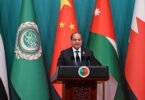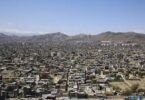BAMYAN CITY (Pajhwok): Millions of afghanis have been possibly embezzled from the budget allocated for combating coronavirus in central Bamyan province, Pajhwok Afghan News learned reliably.
The fund has not been spent to address common problems and millions of afghanis have been misappropriated in the purchase of medical equipment while a small amount was spent on the rehabilitation of roads and cleanliness of parks and ditches, an eight-page document available with Pajhwok Afghan News shows.
The source says: “There is need for further investigation into the procurement process of purchased items, especially the medical equipment, in order to get satisfaction about possible embezzlement or lack of transparency in the process.”
Price difference in purchased items: The documents show that 1,000 Personal Protection Equipment (PPE), 60 gas cylinders for oxygen, 200 pairs of foot wear, 1,000 kilograms of chlorine powder, 10 digital infrared thermometers, 180 blankets, 70 boxes of three layers masks, 700 bottles of 250mg of antivirus spray had been purchased at a cost of 5.4 million afs from the fund allocated for combating coronavirus in Bamyan.
For instance, according to the source, the Administration and Finance Department of Bamyan purchased 1,000 sets of PPE on April 9/2020 from Latif Hussaini Company (LHC). A single set of PPE costs 1,800 afs and subsequently 1,000 sets cost 1.8 million afs. The source has compared the estimated market price of one PPE set with the price charged by LHC and found a difference of 700,000 afs.
The documents also show that the Bamyan Administration and Finance Department on May 30/2020 requested the Governor’s Office to purchase five items needed for precautionary measures at the provincial capital and some districts. After approval from the Monitoring and Confirmation Council and the Governor Office, these items were purchased from the Bamyan Ahmadyar Company (BAC) against over 1.6 million afs.
The documents show that the price of two items out of the five when compared with the estimated market price revealed a difference of 546,000 afs with the purchasing price of these two items. Furthermore, in line with a letter dated May 2/2020, the Bamyan Administration and Finance Department requested the purchase of 175 kilograms of chlorine for spaying of government offices in districts. The chemical was purchased after approval of Monitoring Council and approval decree dated May 2/2020 from the Governor House.
But the documents show 70,000 afs extra were claimed in the purchase of 175 kilograms of chlorine when their market price was compared with the purchasing prices of the Finance Department. The documents also reveal a total difference of 2.5 million afs in purchase of eight items after their estimated market prices were compared with those on which the items had been purchased.
According to the source, Mohammad Raza Tanin, Administration and Finance Director, Mohammad Nasir Shafifi, employee of Public Health Department Finance and Admin branch, Hussain Dad Hidayati, assistant revenue department head, Abdul Majeed, an NDS employee, Tawafuddin, finance director of the Attorney General Department and Syed Ali Aqa Ayub Naseri, Public Health Department Director, were members of the delegation tasked with collecting price quotations and Atiqullah Atiq, assistant head of Bamyan Governor House Admin and Finance, was the one who approved the purchase of the items. The documents suggest more probe specially in the purchase of medical equipment because public interest is not considered when it comes to the purchase of items from coronavirus budget in Bamyan province. This will help clarify any possibility of fund embezzlement or the element of transparency in the purchase of items.
Irrelevant purchases in Bamyan: The documents show two Iranian geysers, two water containers, 28 washing machines, two water containers, 200 water pipes measuring 200 meters, 20 clothing cabinets for doctors, rehabilitation and activation of electricity system in six rooms, rehabilitation of water supply system and credit cards for internet are purchased at 268,000 afs.
According to the source, 5.5 million afs had been spent in Bamyan province from the approved budget for the purpose of coronavirus prevention without identifying exact areas.
Some purchased items are missing: Part of the document reads: “According to credible information from Bamyan, some purchased items and some donated items have been missing.” Officials in Bamyan had been asked to prove the handing over purchased items, but they failed to do so. There is need for probe to ensure that the above purchased items are in place or missing.
Small amount of money spent to repair roads, clean ditches: The findings show that a small amount was spent on rehabilitation of roads, cleanliness of ditches, waste transfer and on purchase of items and equipment not directly needed in combating coronavirus. This amount was spent in violation of the article two and three of procedural rules of the funds approved for coronavirus.
According to the source, the Bamyan City Municipality in a letter dated 29/04/2020 to the Governor’s House recommended the strategy of cleaning ditches, parks, roads and water ponds in the city which will help generate work opportunity for people and be effective in terms of providing services to people.
The documents show that the then governor TahirZaheer after approval from the Monitoring Council gave his nod to execute the project worth 1.4 million on May 11. The source added that funds were spent from the coronavirus budget on cleaning parks, ditches, flood streams on the outskirts of the city in violation of selected areas and has no justification.
According to the source, the local government spent 502,000 afs meant for combating coronavirus on the rehabilitation of roads in Sarzaleg and Sarmurghai of Yakawalang district 2 by hiring 55 people as workforce. This comes at a time when areas where coronavirus funds should be spent had been identified in the procedural rules set for spending the budget. In another letter to the Governor House dated May 7/2020, the Bamyan City Municipality had recommended construction of streets and roads in Bamyan City at a cost of 3.1 million afs. The then Bamyan Governor gave his nod for the project after approval of the Monitoring Council.
The document shows that spending 3.1 million afs from coronavirus funds was irrelevant and the fund was not spent on areas recommended in the procedural rules, adding that this could not be justified.
In another part of the documents, it is written that Bamyan province paid a total of 107,000 afs as fare charges (500 afs per person) for seven people under the name of supervisors to collect the numbers of coronavirus patients in Yakalang, Sigan and Shibar districts. The source wrote: “Paying money to supervisors or agents to collect the number of coronavirus patients in the presence of health personnel in clinics and hospitals in these districts was against the procedural rules and spending in this regard from coronavirus budget could not be justified.”
Bmyan City Mayor Mohammad Aman and Mohammad Jamal Alvi, provincial coronavirus affairs in charge, made the above recommendations while then Governor Mohammand Tahir Zaheer and Atiqullah Atiq, assistant finance and admin head, had approved the recommendations.
In addition, Mohammad Raza Tanin, admin and finance head, Mohammad NasirSharifi, health department finance and admin branch employee, Hussain Hidayati, assistant revenue department head, Abdul Majeed NDS representative and Twafuddin, the Attorney General Office accountant, were members of the delegation tasked with collecting price quotations.
Recommending provision of shelter to drug addicts from Covid-19 budget: Findings show that the commission responsible for collecting homeless drug addicts in Bamyan province had proposed requirements worth 200,000 afghanis for the care and protection of addicts to the governor’s house on April 13.
The documents show that the Bamyan governor had approved the budget based on the commission’s proposal from the Covid-19 response budget. The commission has purchased the required items for homeless drug addicts to the tune of 271,000 afghanis without the written approval of the Observatory Council. According to the documents, an additional 66,000 afghanis was spent on the items from the amount approved by the provincial governor.
A house was also rented against 10,000 afghanis per month from April 16, 2020 to May 16 of 2020 to provide shelter to the homeless addicts. The findings show that hiring a cook, buying a carpet, 30 pillows, 30 mattresses, kitchen tools, vegetables, meat, gas and others cost more than 271,000 afghanis used from the Covid-19 response budget.
Documents obtained by Pajhwok show that local Bamyan officials did not help in providing documents on the nature of Covid-19 response budget spending and always tried to share incomplete information. The procedure of spending Covid-19 response budget says, “The appointed procurement observatory team and other relevant officials are responsible to provide transparent information to the public and all the officials and relevant organs are accountable about the budget spending and those involved in violations or embezzlements of the public assets would be referred to judicial organs.”
A part of the Covid-19 response budget procedure also says that officials and relevant organs are responsible for filing all documents related to the budget spending, something did not observe by Bamyan officials and for that reason, the matter requires an investigation.
Lack of transparency in salary payments to health workers and their employment: Findings show that Bamyan public health director appointed a person with irrelevant and forged documents, as director of Covid-19 response in the province. The documents show that Mohammad Jamal was appointed as director of Covid-19 response in Bamyan province by Sayed Ali Aqa Ayub, Bamyan public health director.
The documents show the person appointed as Covid-19 response director holds a degree in law and a degree in nursing. The documents also show that a person who was appointed as member of the supervising team of the Public Health Department received salaries without being present in the team. However, the source did not provide the name of the person.
Despite several requests, the attendance sheet of workers of Covid-19 response was not shared as information for this report. The source termed hiring and payments of salaries to Covid-19 response officials as non-transparent and said that embezzlement of the Covid-19 response budget and presence of imaginary workers in Bamyan was possible.
In a part of the documents, Bamyan finance and administration department on December 6, 2020 had requested 100,000 afghanis as assistance for five workers of the administrative office of the governor’s house. The Bamyan governor in response to the request said that two-third of the mentioned amount was paid to the head of the administrative office and the rest to other four workers of the office, after being approved by the observatory committee and based on the procedure.
Above explanations show that cutting Covid-19 response budget for assistance to governor’s house workers who receive salaries is in violation of rules and unjustifiable, which requires an investigation to explore the matter.
Bamyan people demand investigation into the case: Arifa Nazari, a resident of Bamyan province, said, “Unfortunately, there is no system in place to show how much budget is allocated for Covid-19 response for this province, and how much of it was spent on what projects.” “Embezzlement of Covid-19 response budget is a national treason, those involved should be brought to justice,” she added.
Amir Jan Kawsari, a civil society activist in Bamyan, also said that the Covid-19 response budget was not spent transparently in the province. “The budget had not been spent as needed, it was spent on things which were not required,” he added, saying that the management of Covid-19 response budget in Bamyan was full of problems.
Views of the officials: Zabihullah Bayan, a worker of the general penalty of Bamyan attorney office, told Pajhwok that investigating the issue was not their responsibility but a team of Criminal Justice Task Force (CJTF) which was appointed for investigating the case had returned to Kabul after completing the probe.
Meanwhile, Jamshid Rasouli, spokesman of the Attorney General Office (AGO), shared a copy of a letter with Pajhwok that shows embezzlement cases of Covid-19 response budget had been referred to AGO by the Office of the Ombudsperson for investigations. Rasouli said CJTF prosecutors were appointed for investigation of the cases as some of them had already traveled to relevant provinces and some others were busy investigating the reported cases.
He said that investigations of the cases in seven provinces had so far been completed while the cases of five other provinces including Maidan Wardak, Herat, Samangan, Ghor and Takhar where 74 people were accused had been referred to courts for judicial process. The rest of other cases regarding embezzlement of Covid-19 response budget are under AGO investigation and the office is committed to accurately following the cases in line with the law and sharing the results with the public, he added.
Response of the accused: Sayed Ali Aqa Ayub Naseri, Bamyan public health director, told Pajhwok that the Ministry of Public Health had allocated four million afghanis for Covid-19 response for Bamyan province, and all of it was spent based on the procedure and requirements.
He said that 30 million afghanis allocated by the Independent Directorate of Local Governance (IDLG) for Bamyan province was out of the authority of the public health department to spend it. He said it was the authority of the governor and two procurement and evaluation committees, of which the public health department was not a member.
“We have spent that amount on purchasing medicines, oxygen and masks following the procedure of Covid-19 response; but the public health department was not involved in construction and clearance of water drainages and distribution of risk rewards,” Naseri said. Atiqullah Atiq, deputy director of administrative and finance affairs of Bamyan, said, “We are accountable, we have not embezzled Covid-19 response budget, we have not violated the law.”
About the difference in rates of materials purchased, he said the officials who accused them had probably collected market rates at times when the prices were low but the rates at the time the materials were purchased were higher. This project in Bamyan was not in violation of the law because creating work opportunities and eliminating poverty was one of the goals of the Covid-19 project, he added.
However, the procedure of Covid-19 response obtained by Pajhwok does not include any articles of creating jobs or eliminating poverty. About providing shelter to homeless drug addicts, Ati said, “We launched this project for prevention of Covid-19 spread, we collected them from the city in order to prevent the virus spread.” About transparency in employment of workers, he said that there was no corruption in this regard. Pajhwok tried to contact Tahir Zuhair, former governor of Bamyan for his comment on the matter, but failed.






